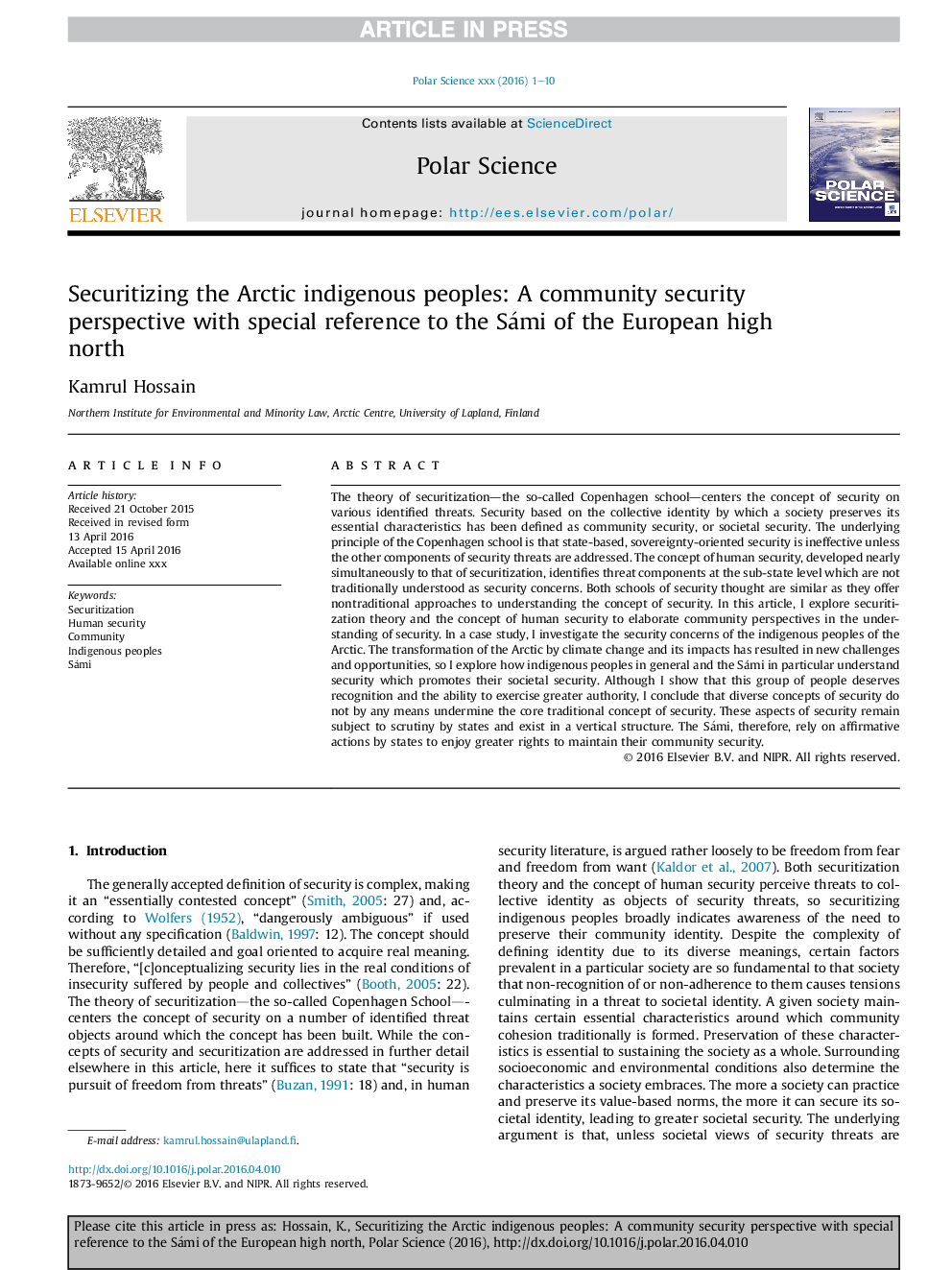| Article ID | Journal | Published Year | Pages | File Type |
|---|---|---|---|---|
| 5780600 | Polar Science | 2016 | 10 Pages |
Abstract
The theory of securitization-the so-called Copenhagen school-centers the concept of security on various identified threats. Security based on the collective identity by which a society preserves its essential characteristics has been defined as community security, or societal security. The underlying principle of the Copenhagen school is that state-based, sovereignty-oriented security is ineffective unless the other components of security threats are addressed. The concept of human security, developed nearly simultaneously to that of securitization, identifies threat components at the sub-state level which are not traditionally understood as security concerns. Both schools of security thought are similar as they offer nontraditional approaches to understanding the concept of security. In this article, I explore securitization theory and the concept of human security to elaborate community perspectives in the understanding of security. In a case study, I investigate the security concerns of the indigenous peoples of the Arctic. The transformation of the Arctic by climate change and its impacts has resulted in new challenges and opportunities, so I explore how indigenous peoples in general and the Sámi in particular understand security which promotes their societal security. Although I show that this group of people deserves recognition and the ability to exercise greater authority, I conclude that diverse concepts of security do not by any means undermine the core traditional concept of security. These aspects of security remain subject to scrutiny by states and exist in a vertical structure. The Sámi, therefore, rely on affirmative actions by states to enjoy greater rights to maintain their community security.
Related Topics
Physical Sciences and Engineering
Earth and Planetary Sciences
Earth and Planetary Sciences (General)
Authors
Kamrul Hossain,
